|
|
| |
|
| |


SpringerBriefs in
Environment, Security, Development and Peace (ESDP)
A Peer-reviewed Book Series
Edited by
Hans Günter Brauch
Free University of Berlin and AFES-PRESS
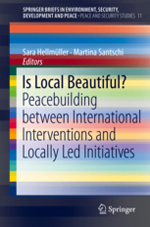 |
Vol 11 |
Hellmüller, Sara; Santschi, Martina (Eds.): Is Local Beautiful? Peacebuilding between International Interventions and Locally Led Initiatives. SpringerBriefs in Environment, Security, Development and Peace, vol. 11. Peace and Security Studies No. 1 (Cham – Heidelberg – New York – Dordrecht – London: Springer-Verlag, 2014).
ISBN (Print): 978-3-319-00305-4
ISBN (Online/eBook): 978-3-319-00306-1
DOI:
More on this book
Order Form
Order this book on the Springer Website
Order electronic version and individual chapters |
| |
|
|
-
Provides unique insights on how to balance local ownership and international interventions
-
Gives voice to a multitude of authors with different perspectives (local/international; researchers/practitioners; etc.)
-
A helpful compilation of lessons learnt and best practices on how to tackle the challenging demand of implementing local ownership
Based on the swisspeace annual conference 2012, the publication examines the delicate balance between external interventions and locally led initiatives. It addresses the question of what “local” means in the peacebuilding and development context; which actors on the ground actually represent the local level and how external actors choose their partners from amongst them. Moreover, it examines how local ownership - emerging as key criteria for any external intervention - is constituted: does this concept only imply local participation or is local control from the outset a must? Finally, it assesses the potential of locally led initiatives and local conflict resolution mechanisms and their interaction with external interventions. Several authors provide insights on these questions and nuance our thinking about both local ownership and external interventions. As such, the publication aims to encourage critical reflections on this topical debate in peacebuilding and development.
Content Level » Research
Keywords » Cooperation - International Intervention - International Peacebuilding - Local Ownership - Local Peace Initiatives
Related subjects » Anthropology & Archaeology - Political Science - Social Sciences
Table of contents
Part I Conceptual Inputs.- Political Processes of Conflict Transformation and Ownership.- International Perspectives on Local Ownership.- From Local Ownership to Partnership.- Maximizing the Potential of Locally Led Peacebuilding in Conflict-Affected States.- Part II Case Studies.- Local Conflict Resolution Mechanisms in South Sudan.- Localizing the Liberian Peace Process.- Switzerland’s Approach to Local Ownership.- A Case Study of Local – International Cooperation in Myanmar.
On the Contributors
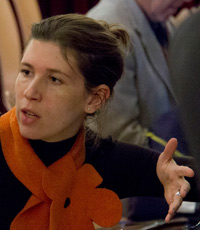 |
Rachel Gasser is a Mediation Programme Officer at swisspeace. Her main responsibilities are advising parties to a conflict, supporting third party mediation and conducting applied research on issues related to peace mediation. She has been involved in West Africa, Central Asia and South East Asia. She currently supports the activities of a local Myanmar NGO in the peace processes. Previous work experiences include the UN/Department of Political Affairs in New York, the Centre for Applied Studies in International Negotiations (CASIN), the Swiss Mission to the UN and UNHCR. She studied at the Graduate Institute of International Studies in Geneva and at UC Berkeley, USA. She holds a Master from the Graduate Institute.
Address: Sonnenbergstrasse 17, P.O. Box, CH - 3000 Bern 7
Website: <http://www.swisspeace.ch/aboutus/staff-by-alphabetical-order/rachel-gasser.html>
Email: <rachel.gasser@swisspeace.ch> |
| |
|
|
Carolyn Hayman founded together with Scilla Elworthy Peace Direct in 2004. Peace Direct funds and promotes local peacebuilding in conflict areas, providing resources and profile to outstanding local peace initiatives. Carolyn Hayman previously worked for the Foyer Federation, a network of projects providing accommodation and education for homeless young people. During this time she was also a Board member of the Commonwealth Development Corporation. She acted as Joint Managing Director of the Korda Seed Capital Fund. She also worked in the consultancy business on office automation, for the Ministry of Overseas Development and as a member of the UK Cabinet Office Think Tank. She graduated from Cambridge University and holds a Master in Development Economics.
Address: Peace Direct, 56 Leonard Street, London EC2A 4LT
Website: <http://www.peacedirect.org/about/who-we-are/>
Email: carolyn@peacedirect.org |
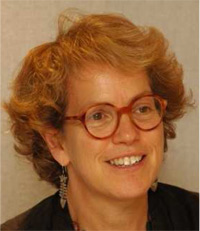
|
| |
|
|
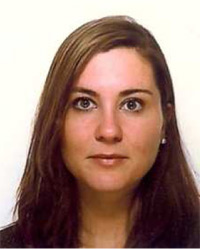 |
Sara Hellmüller is a PhD Candidate at the University of Basel and a Programme Officer in the Mediation Programme at swisspeace. She holds a Master Degree in International Relations from the Graduate Institute of International Studies in Geneva and a Master of Law and Diplomacy from the Fletcher School at Tufts University in Boston. Previous work experiences include internships with UNDP in eastern Congo, with the Swiss Embassy in Abuja, with local NGOs in Mongolia and South Africa. She is currently writing her PhD dissertation on the interaction between local and international actors in peacebuilding in the Democratic Republic of Congo.
Address: Sonnenbergstrasse 17, P.O. Box, CH - 3000 Bern 7
Website: <http://www.swisspeace.ch/aboutus/staff/staff-by-alphabetical-order/sara-hellmueller.html>
Email: <sara.hellmueller@swisspeace.ch> |
| |
|
|
Heinz Krummenacher received his MA (1982) and PhD (1985) in political science from the University of Zurich. He started his professional career with the Swiss Defence Department where he directed a study group dealing with the re-definition of Swiss security policy (1985-1989). Between 1990 and 1992 he served as foreign editor with the Swiss daily newspaper Der Bund. Before joining swisspeace in 1998 he was head of the social research and media department at IHA-GfK, a leading market research institute (1992-1998). At swisspeace he was head of the early warning programme FAST International (1998-2008) and is, since 2001, a member of the directorate. In addition, he is the CEO of the BEFORE project.
Address: Sonnenbergstrasse 17, P.O. Box, CH - 3000 Bern 7
Website: <http://www.swisspeace.ch/aboutus/staff/staff-by-alphabetical-order/heinz-krummenacher.html>
Email: <heinz.krummenacher@swisspeace.ch>.
|
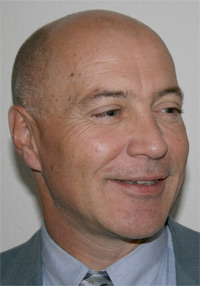
|
| |
|
|
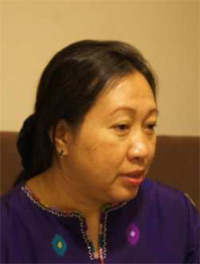 |
Ja Nan Lahtaw is an Assistant Director for Programmes and International Relations of Shalom (Nyein) Foundation in Myanmar. Her main responsibilities are designing the peace programmes of the organization, networking with international communities, local organizations and facilitating peacebuilding trainings with various religious and social organizations and ethnic groups. Ja Nan holds a M.A in conflict transformation from Eastern Mennonite University (VA), USA. She was a Chevening Fellow (2008) at Birmingham University, UK. She has taught at the Master of Applied Conflict Transformation Studies programme (ACTS) of Pannasastra University in conjunction with the Center for Peace and Conflict Studies in Cambodia. She is also an active member of Action Asia, a Network of Peace Builders in Asia region.
Address: No. 95 A, Penthouse, Shaw Padauk Condo, Myay Nu Street, San Chaung, Yangon, Myanmar
Website: <http://www.shalommyanmar.org/>
Email: <Janan.shalom@gmail.com> . |
| |
|
|
Marco Pfister holds a Licence in International Relations from the Graduate Institute of International Studies in Geneva and an MA in Conflict Resolution and Post-Conflict Assistance from the Fletcher School of Law and Diplomacy in Boston, USA. He works at swisspeace in the Statehood and Conflict Programme focusing on questions of democratization and citizen participation in post-conflict statebuilding. Previous work experiences in Sudan include the management of a civil society-support programme and of an in-kind programme for local government and civil society in support of the peace process. He also served as strategic advisor to the Three Areas Steering Group in Sudan, a group of ten donor countries implementing programmes in Abyei, Southern Kordofan and Blue Nile.
Address: Waldheimstrasse 28, 3012 Bern
Email: <marco.pfister@gmail.com> .
|
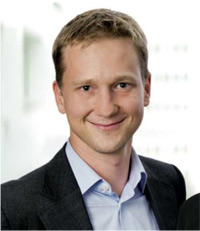
|
| |
|
|
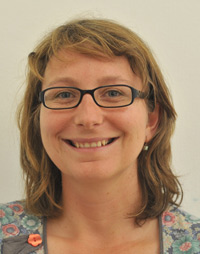 |
Martina Santschi holds an MA in Social Anthropology, Ecology and Biology from the University of Bern. She joined swisspeace in April 2007 as a PhD candidate and conducts research through NCCR North-South. The topic of her PhD research is “Negotiating Authority and Statehood in South Sudan”. She has been involved in research projects and consultancies including for the Swiss Federal Department of Foreign Affairs and the Rift Valley Institute together with the United States Institute for Peace. Since 2012 she is also researcher with the Secure Livelihoods Research Consortium research project on South Sudan.
Address: Sonnenbergstrasse 17, P.O. Box, CH - 3000 Bern 7
Website: <http://www.swisspeace.ch/aboutus/staff/martina-santschi.html>
Email: <martina.santschi@swisspeace.ch>. |
| |
|
|
Peter Schuman studied at the University Mannheim in Germany. He started his overseas career in 1973 with German bilateral aid programmes. He joined the UN in 1979, worked with ILO and UNFPA and became a UNDP staff member in 1983. With UNDP he specialized in programmes in support of war and civil strife affected countries and worked in India, Pakistan, Sri Lanka, Sudan, Mozambique, Liberia, Somalia, Tajikistan and Albania. He was seconded to UN peace operations in Iraq, Kosovo and Sudan. At the end of 2007 he joined the University Konstanz. He conducts field trips to Sudan and South Sudan, provides training for personnel seconded to the UN and other peace operations and advises on policy issues.
Address: Clara-Wieck-Str. 5, 10785 Berlin
Email: <schumannp@t-online.de>.
|
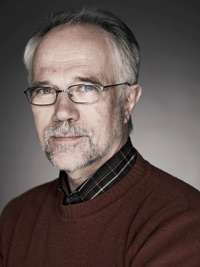
|
| |
|
|
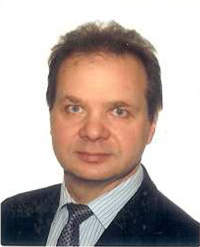 |
Claude Wild completed his studies in political science and international relations and post-graduate studies in security policy at the Graduate Institute of International and Development Studies in Geneva. Before joining the Swiss diplomatic service, he participated in UN peace operations in Namibia and Western Sahara. As a diplomat, he has worked e.g. with the Swiss Agency for Development and Cooperation and the Swiss embassy in Nigeria. He was deputy head of the peace-policy section of UN and International Organizations Division in Berne, first secretary and counsellor at the Swiss embassy in Moscow, and in charge of the policy and institutions section of the Directorate for European Affairs in Bern. In August 2010, he was appointed Ambassador and head of the FDFA’s Human Security Division.
Address: Federal Department of Foreign Affairs, Directorate of Political Affairs DP, Human Security Division, Bundesgasse 32, 3003 Bern
Website: <http://www.eda.admin.ch/eda/en/home/dfa/orgcha/sectio/pad/pad4.html>. |
| |
|
|

swisspeace is an action-oriented peace research institute with headquarters in Bern, Switzerland. It aims to prevent the outbreak of violent conflicts and to enable sustainable conflict transformation.
swisspeace sees itself as a center of excellence and an information platform in the areas of conflict analysis and peacebuilding. We conduct research on the causes of war and violent conflict, develop tools for early recognition of tensions, and formulate conflict mitigation and peacebuilding strategies. swisspeace contributes to information exchange and networking on current issues of peace and security policy through its analyses and reports as well as meetings and conferences.
swisspeace was founded in 1988 as the “Swiss Peace Foundation” with the goal of promoting independent peace research in Switzerland. Today swisspeace engages about 40 staff members. Its most important clients include the Swiss Federal Department of Foreign Affairs (FDFA) and the Swiss National Science Foundation. Its activities are further assisted by contributions from its Support Association. The supreme swisspeace body is the Foundation Council, which is comprised of representatives from politics, science, and the government.
swisspeace is an associated Institute of the University of Basel and member of the Swiss Academy of Humanities and Social Sciences (SAHS).
Links:
|
|
|